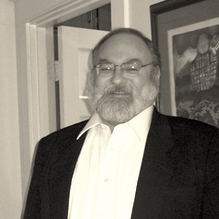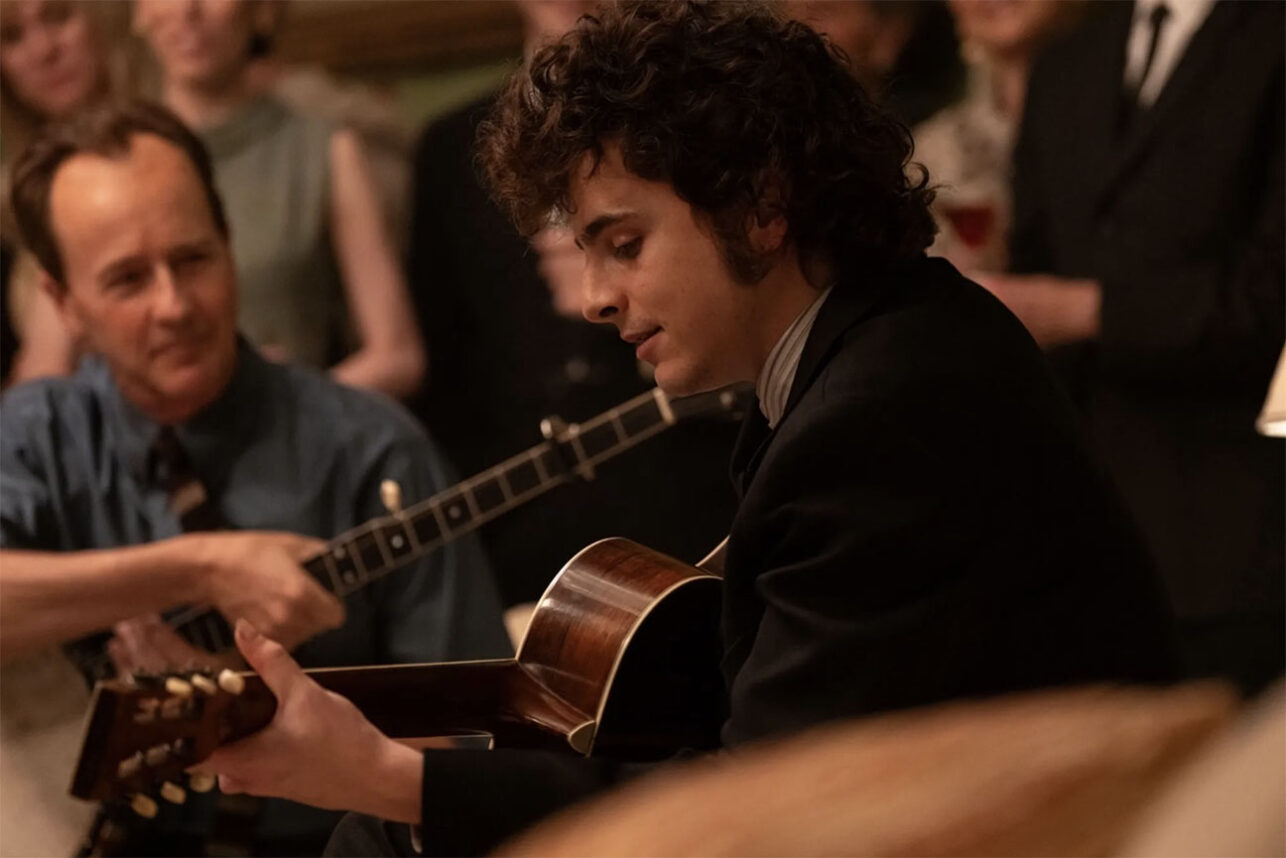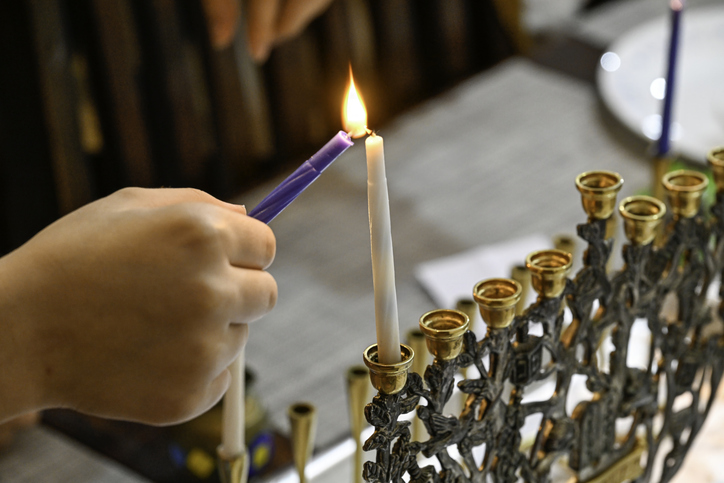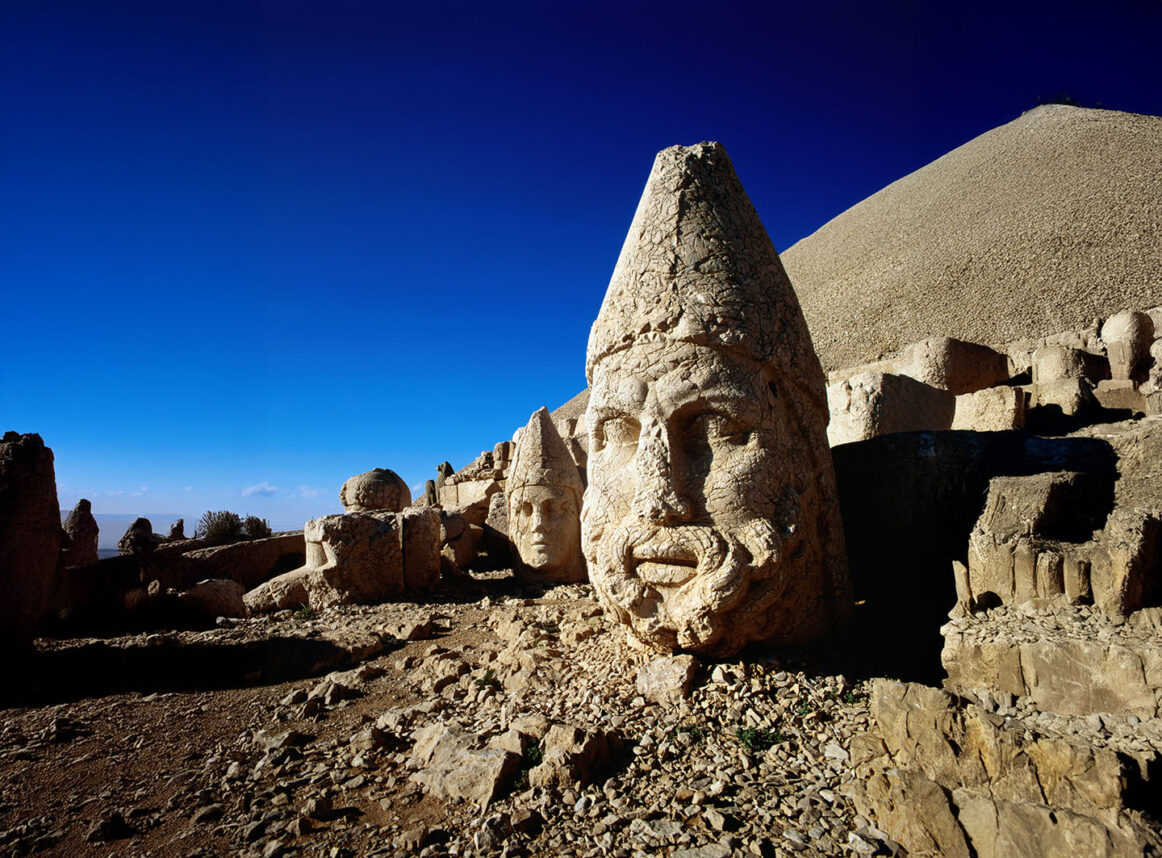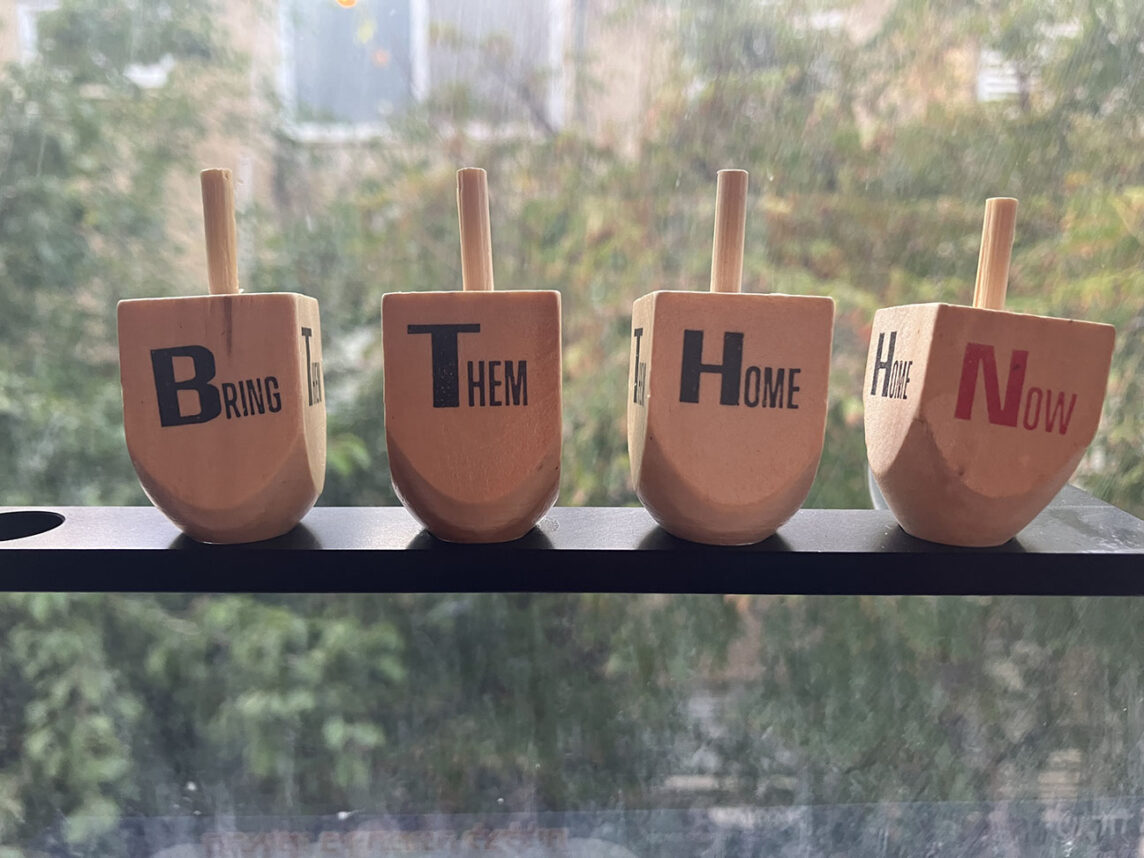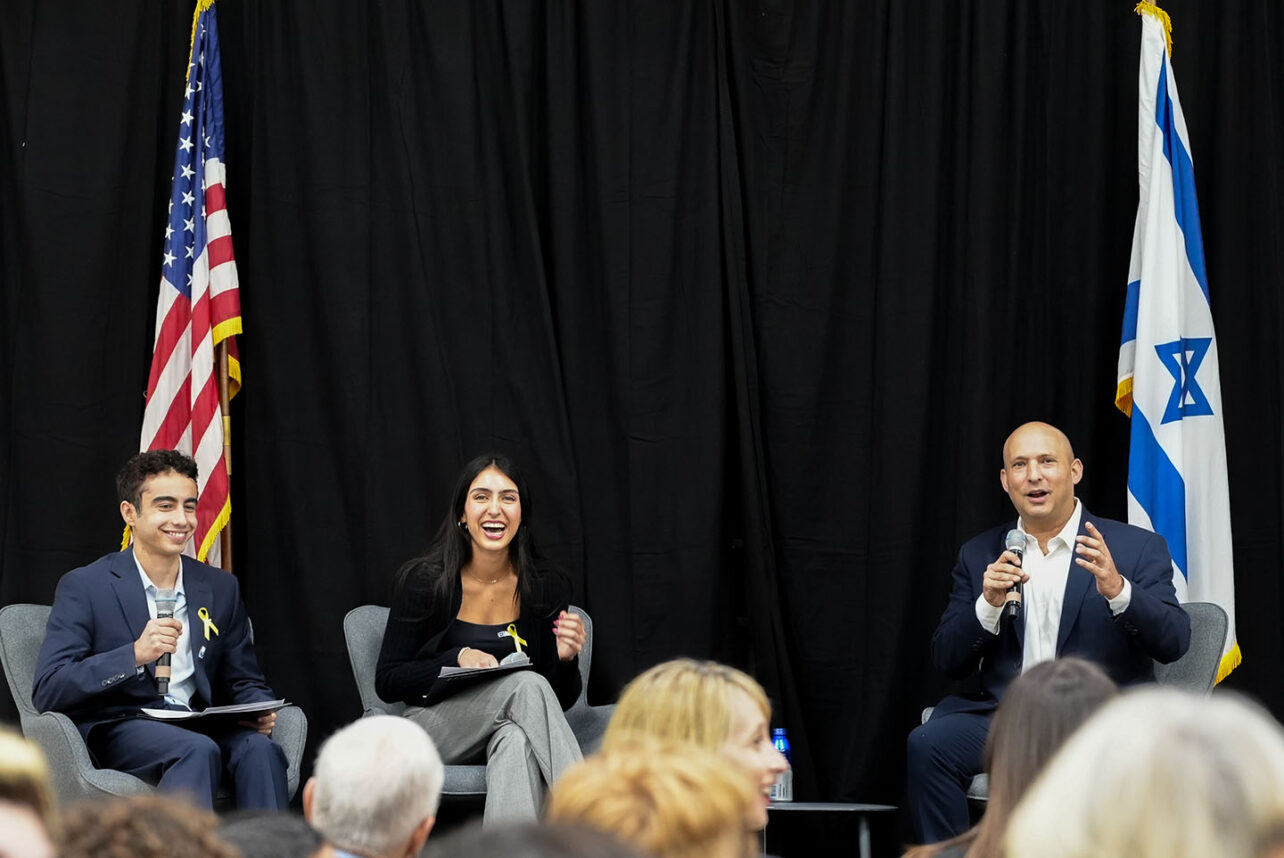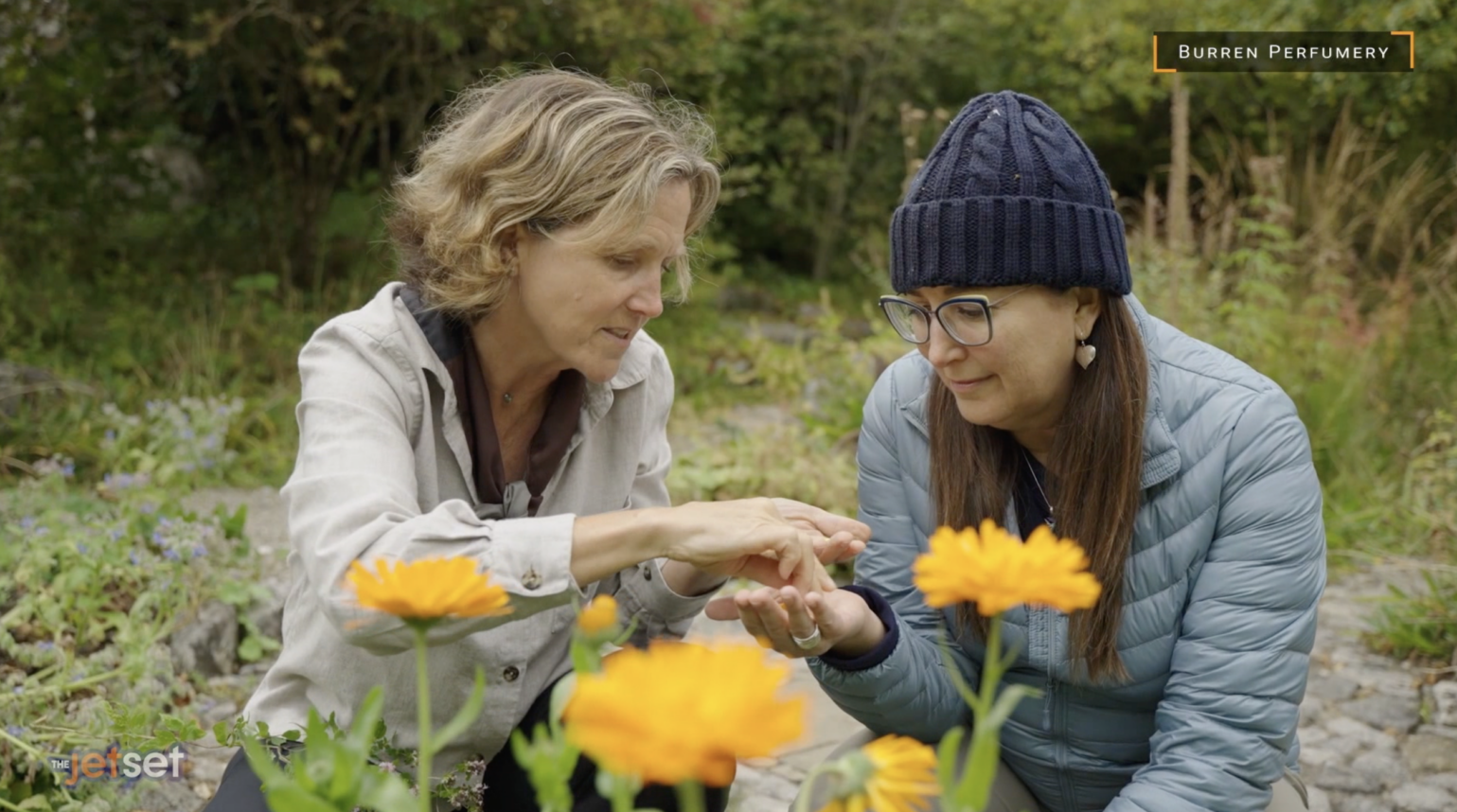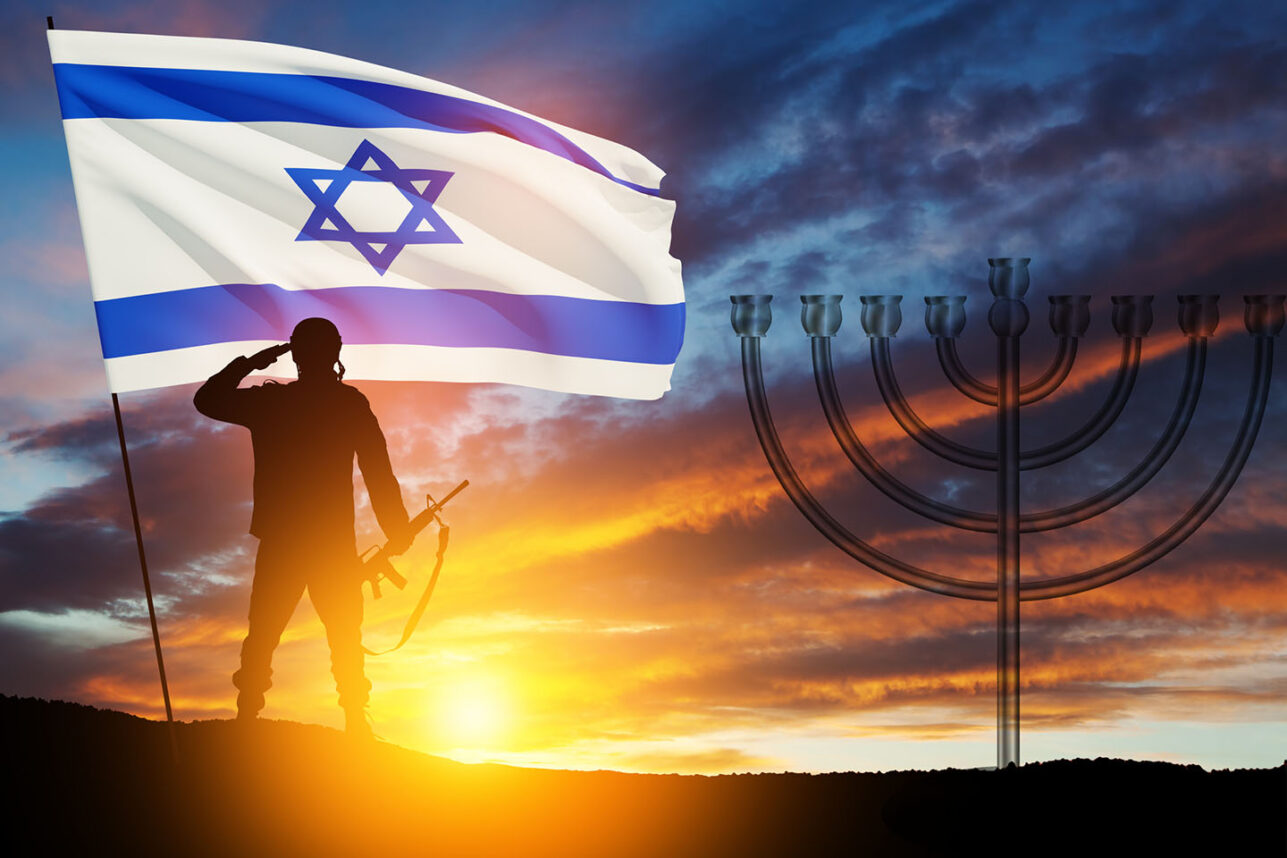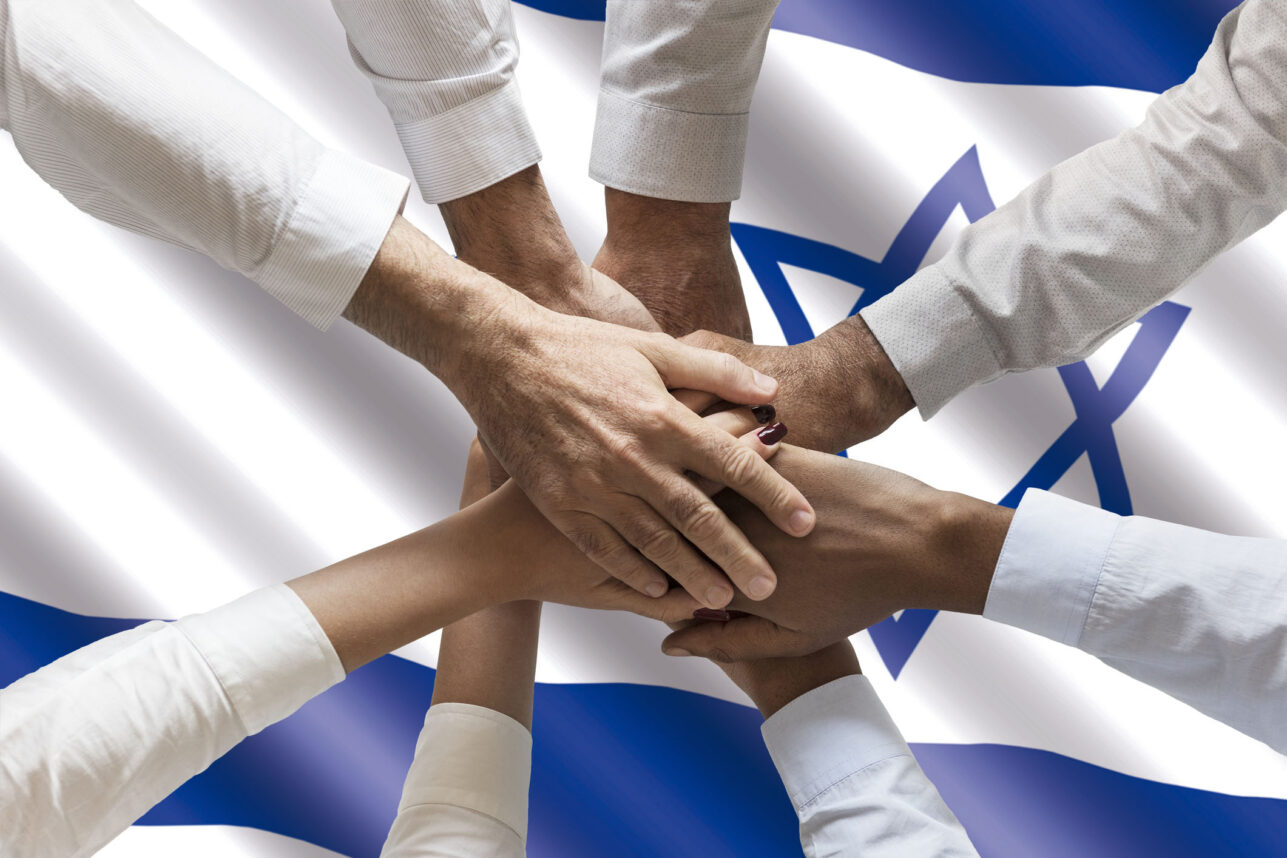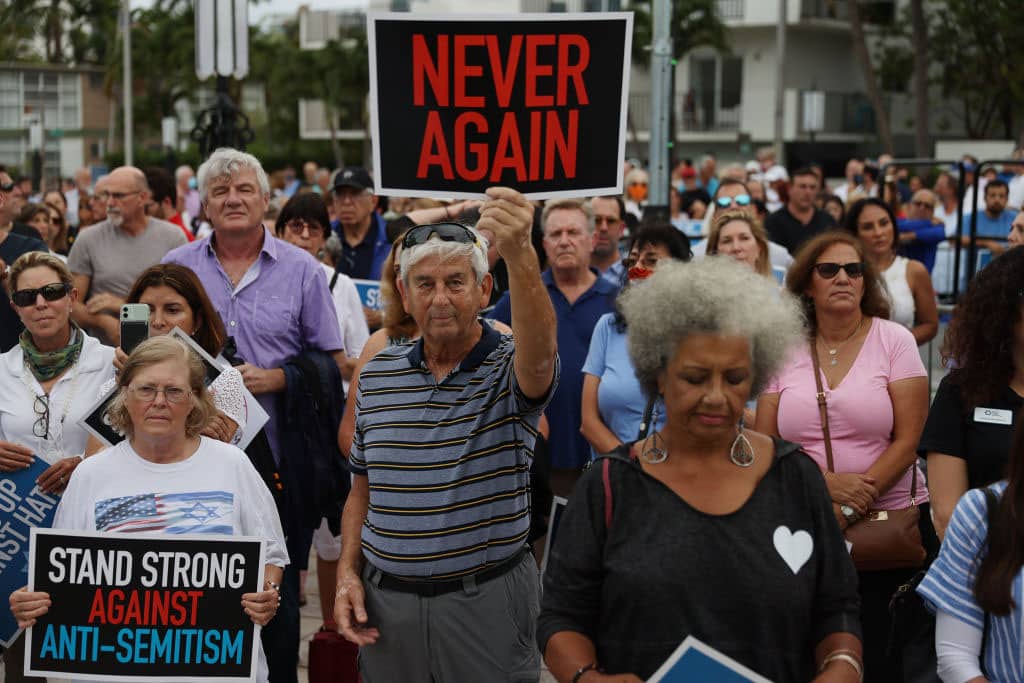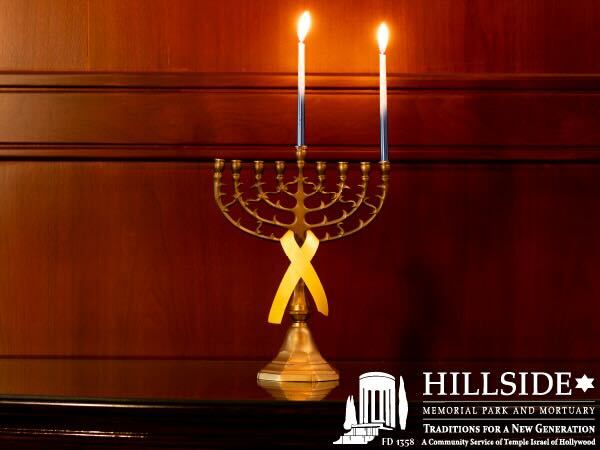In the Yom Kippur liturgy, many of us recite a familiar phrase — ‘on Rosh Hashanah it is written and on Yom Kippur it is sealed’ — but how many of us believe the literal meaning? So much seems random and unknowable that we really have no idea whether anything we do or say can affect our future. Who are we to understand matters of who lives and who dies? We know that some will live and some will die, some will die at an old age, some young, some by fire, some by water, some by sword and so on, as the litany in our Yom Kippur prayer goes. We have no idea about the specifics, and we may even hope desperately that teshuvah and tefillah and tzedaka will …. do what? Avert disaster? Save us as individuals from harsh judgment?
We don’t know what or how God judges. All we have is a question mark, a “what?”
There’s another “what” question at another liminal moment in Jewish history that might help give some useful context to our bewilderment, especially in the time between Rosh Hashanah and Yom Kippur. This question touches on life and death, survival and freedom.
We see this question arise in Exodus Ch. 15 as the newly freed people of Israel are stuck on the shores of the Sea of Reeds, seemingly unable to cross, with the Egyptian army bearing down and hemming them in. They ask, tellingly, in v.11 — “Weren’t there enough graves in Egypt? Did you have to take us into the wilderness to die?”
When our ancestors were standing on the cusp of freedom, at the shores of the sea, threatened by their past but not yet able to reach their future, Moses tried to calm them, telling them to stand still in witness to God’s salvation.
The verse that follows is an answer from God to a question that appears unasked.
“What are you yelling to me for?” God, asks. “Talk to the people and carry them forward.”
Rashi offers one explanation that might resonate particularly well as we anticipate the Yizkor service of Yom Kippur. According to a Midrash Rashi quotes, God says, “Tell the people to go. The faith and merit of their ancestors and the faith they showed in leaving Egypt are enough to split the sea.” Sometimes, our own faith is enough to give us the courage we need to move forward. If that’s not enough, somewhere back in our family histories someone had a dream, someone had faith in something that made them move forward, and we can draw on that source of strength even now.
On a more practical level, Rashi also imagines God saying to Moses, “What are you talking for?! This is no time for extensive prayer. The people are in trouble. Act!” How many of us feel the tension inherent in sitting through long services when we know that there are immediate needs for action, with homeless to shelter, hungry to feed, and refugees to bring to safety across a sea that will not split open to let them come across.
In another take on this verse, Rebbe Nachman of Breslov focuses on the first word, “What,” in Hebrew, “Mah.” As I learned from Reb Mimi Feigelson, Rebbe Nachman is teaching us that God is saying, “All you have to do is call out to me … even if you don't know how to pray or what to say, it is enough if you call out “What/Mah” and I will answer you, you will not stay stuck where you are.”
Over the High Holidays, we spend a lot of time praying, even when many of us feel the need to act. We see injustice and poverty and hatred, and we know that we are called to do acts of tzedaka. We know that many of our ancestors fought this fight too, and we call on their memory to inspire us.
And we know that we will not always succeed. We will make some progress and save some lives, God willing, but our human abilities are limited.
When we face our limitations and hear about people dying, how often do we rage and curse as we grieve? I recently recorded an ELI talk on issues of living and dying Jewishly in which I asked what it would mean if, when we heard about a death, instead of uttering an epithet, we said the traditional Hebrew phrase of blessing, “Baruch dayan emet,” blessed is the judge of truth, a truth beyond our understanding?
[Editor’s note: ELI talks present innovative ideas and inspiring concepts exploring Jewish engagement, literacy and identity. All of them, including the one featuring Dr. Slater, can be accessed at “>Living Jewishly means Dying Jewishly, Too.’]
Rebbe Nachman’s teaching is profound. Even when we acknowledge that we have no idea who will live and who will die, even when we ask how a merciful God can let innocent children wash up dead on the seashore when their families try to flee the horrors of war, we are calling out “What?” and even a bit of “WTF?!” to God. God’s answers are not always clear and timely, and God’s truth is not understandable to the human intellect. We can ask the question, and acknowledge what we don’t understand.
And then we must act and do more in our communities and our world. When someone dies, we say “Baruch dayan emet,” and then we set about making funeral plans, and supporting the bereaved, and pulling our wounded community back together. We bless and then we act.
May we live this year and all our years knowing when to stop praying and take action.
May our remembering our parents, grandparents or other loved ones at Yizkor ground us in our tradition of improving our communities and the world around us.
May we live this year and all our years knowing that our asking about and acknowledging truth beyond our understanding keeps us in relationship with God.
NOTE: Reb Mimi Feigelson’s translation of and teaching about Rebbe Nachman as quoted above can be found at:
Dr. Michael Slater is president of the board of Kavod v’Nichum (Honor and Comfort, www.jewish-funerals.org/kavod-vnichum). He is a founding member of the Progressive Chevrah Kadishah in the Chicago area. Along with his family, he is a longtime member of Lomdim Chavurah. He is an emergency medicine physician with Sinai Health Systems in Chicago, and is an Assistant Professor at Rosalind Franklin University/The Chicago Medical School.
[Editor’s Note: The theme of this piece not only ties to the Yamim Nora’im, but it is also beautifully connected to the recently released ELI talk (9/9/15) by Dr. Michael Slater. ELI talks present innovative ideas and inspiring concepts exploring Jewish engagement, literacy and identity. All of them, including the one featuring Dr. Slater, can be accessed at “>http://ELITalks.org/Living-Jewishly-Means-Dying-Jewishly-Too. I suggest you take 12 minutes to view it. — JB]
UPCOMING GAMLIEL INSTITUTE COURSES
October 2015:
Chevrah Kadisha: History, Origins, & Evolution (HOE). Classes weekly Tuesdays from October 13th to December 29th, 8-9:30 pm EST/5-6:30 pm PST (12 sessions), with an online orientation session Monday October 12th (same hours). REGISTER NOW!
The course is an examination of the evolution of the institution of Chevrah Kadisha, starting from Biblical and Talmudic source texts, examining medieval development including the establishment of the “modern” Chevrah in Prague (1626) and on, through history and geography, as the institution was imported to North America, including a focus on major developments beginning in the latter part of the 20th century. We will look at how the Chevrah has changed over time, with readings that include text study and emphasize history, sociology, politics, government, and many other factors.
Winter 2016:
During the coming Winter semester, the Gamliel Insitute will be offering the course. Chevrah Kadisha: Taharah & Shmirah (T&S). This courses will run from January 5th to March 22nd, 8-9:30 pm EST/5-6:30 pm PST (12 sessions), with an online orientation session Monday January 4th (same hours). For more information, visit the “>Kavod v’Nichum website.
This course is an in-depth study of the work of the Chevrah Kadisha in the activities and mitzvot of guarding the body of the deceased (shmirah) and of ritually preparing the body for burial (taharah). This is very much a “how-to” course as well as an examination of the liturgy and of the unusual situations that can arise. The course looks as well at the impact of the work on the community and on the members of the Chevrah Kadisha, and provides an ongoing review of best practices. Includes spiritual transformative power; personal testimony; meaning and purpose; face of God; Tahor and Tamei; Tachrichim; History; manuals, tefillah, training, impediments; safety; and complications.
NEW CLASS TIME OPTION:
We are considering the options of offering a course mid-day (East Coast time) or morning (West Coast time) as a convenience to those who have scheduling issues with the evening times now in use (including those overseas), or providing links to the recorded sessions of the evening classes (to be viewed at the student’s convenience). This is anticipated to be the same online format and material as the courses that have been offered in past, but at a time that works better for some than the evening (Eastern Standard).
If you are interested in this option, please be in touch by November 1st 2015 to let us know: we need to assess the level of interest as we determine whether to incorporate these class sessions.
TUITION:
Tuition for Gamliel Institute classes is $500 per person per course. Groups of 3 or more from the same organization receive a 20% discount. There are clergy discounts available, and we work to find Scholarships and help students seek sources of funding. Contact us to inquire about any of these matters.
REGISTRATION:
You can “>jewish-funerals.org/gamreg.
INFORMATION:
Please contact us for information or assistance. info@jewish-funerals.org or call 410-733-3700.
DONATIONS:
Donations are always needed and most welcome – online at
RECEIVE NOTICES WHEN THIS BLOG IS UPDATED!
Sign up on our Facebook Group page: just search for and LIKE “>@chevra_kadisha.
To find a list of other blogs and resources we think you, our reader, may find to be of interest, click on “About” on the right side of the page.There is a link at the end of that section to read more about us.
